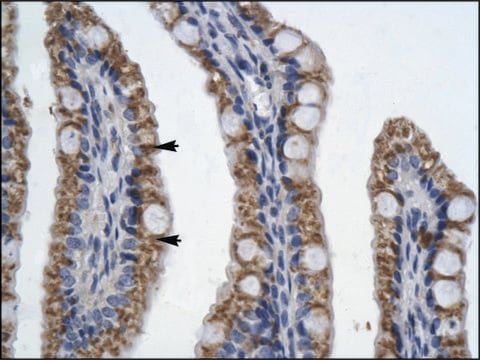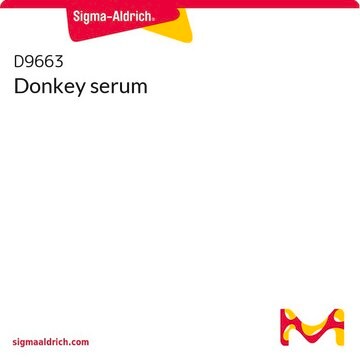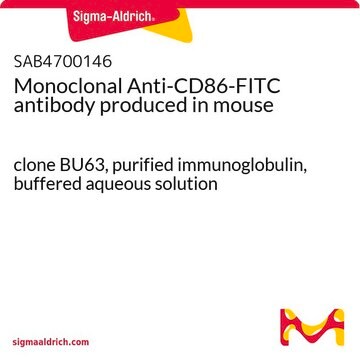MAB079-1
Anti-S-100 Protein Antibody, clone 15E2E2
clone 15E2E2, Chemicon®, from mouse
Synonym(s):
Calcium Binding Protein A1/B1
About This Item
Recommended Products
biological source
mouse
Quality Level
antibody form
purified immunoglobulin
antibody product type
primary antibodies
clone
15E2E2, monoclonal
species reactivity
bovine, rat, human, mouse
manufacturer/tradename
Chemicon®
technique(s)
immunohistochemistry (formalin-fixed, paraffin-embedded sections): suitable
immunoprecipitation (IP): suitable
western blot: suitable
isotype
IgG2aκ
NCBI accession no.
UniProt accession no.
shipped in
wet ice
target post-translational modification
unmodified
Gene Information
human ... S100A1(6271)
General description
Specificity
Immunogen
Application
A previous lot of this antibody was used in IP.
Visualization of cellular and subcellular localization of S-100 protein using immunohistochemical techniques.
Immunohistochemistry:
A 1:100-200 dilution of a previous lot was used for paraffin embedded tissue sections.
Optimal working dilutions must be determined by end user.
Metabolism
Muscle Physiology
Quality
Western Blot Analysis:
1:1000 dilution of this antibody detected S100 on 10 µg of PC12 lysate.
Physical form
Storage and Stability
Analysis Note
Positive Control Tissue: Melanoma
Other Notes
Legal Information
Disclaimer
Not finding the right product?
Try our Product Selector Tool.
Storage Class Code
12 - Non Combustible Liquids
WGK
WGK 2
Flash Point(F)
Not applicable
Flash Point(C)
Not applicable
Certificates of Analysis (COA)
Search for Certificates of Analysis (COA) by entering the products Lot/Batch Number. Lot and Batch Numbers can be found on a product’s label following the words ‘Lot’ or ‘Batch’.
Already Own This Product?
Find documentation for the products that you have recently purchased in the Document Library.
Our team of scientists has experience in all areas of research including Life Science, Material Science, Chemical Synthesis, Chromatography, Analytical and many others.
Contact Technical Service







